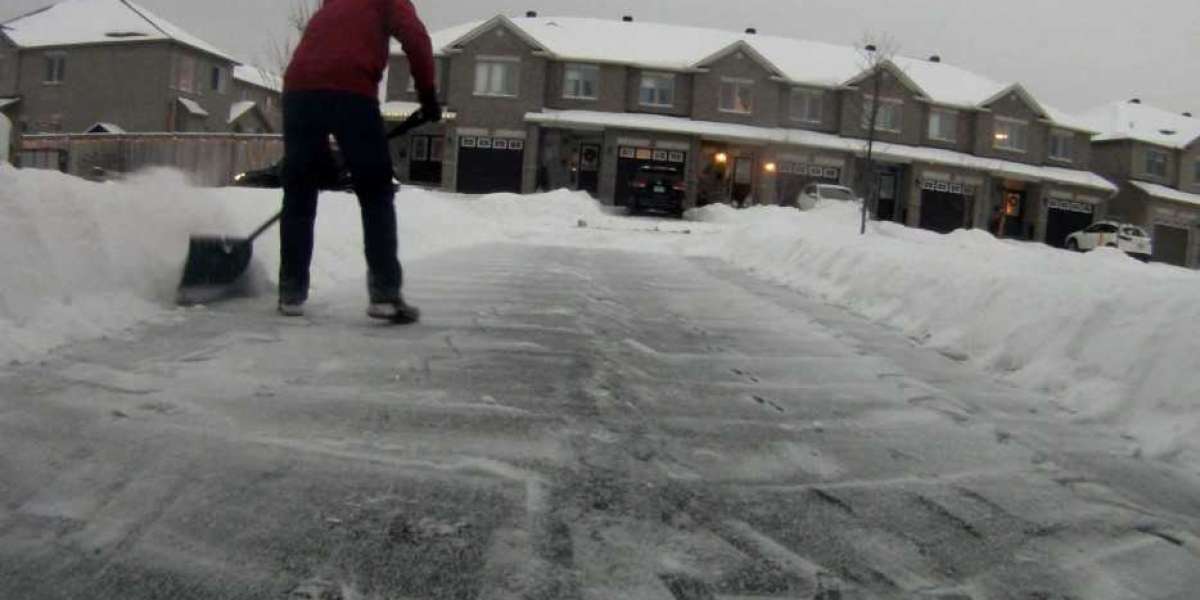The cost of snow removal for the season depends on various factors, including the size of your property, the frequency of snowfall, and the level of service you require. Snow removal is an essential service for many commercial and residential properties, but understanding the pricing structure can help you budget appropriately for the winter months. Here’s a breakdown of how much you can expect to pay for snow removal per season:
Factors Affecting Snow Removal Costs
- Property Size Larger properties generally cost more to clear due to the increased area that needs to be addressed. For example, a large parking lot or a sprawling commercial complex will require more equipment and labor compared to a smaller residential property.
- Frequency of Snowfalls In areas with frequent or heavy snowfalls, snow removal services may be needed more often. In contrast, regions with light or infrequent snowfalls will have lower seasonal costs due to fewer service calls.
- Type of Service Snow removal services can be tailored to your needs. You can choose from:
- Per-Visit Service: Charges are based on each time snow is removed.
- Seasonal Contracts: A fixed price for the entire season, often covering multiple visits throughout the winter.
- On-Demand Service: You pay per occurrence, which can be more expensive if snowfalls are frequent.
- Location Costs can vary depending on your location. Urban areas tend to have higher snow removal rates due to increased demand for services, whereas rural or less populated areas might offer more competitive pricing.
- Level of Service Snow removal services range from basic plowing to more comprehensive services, such as salting, de-icing, and clearing walkways. Additional services, such as salting or sanding to prevent ice buildup, can increase the overall cost.
Average Cost of Snow Removal per Season
While prices can vary, here are some general estimates for snow removal costs:
- Residential Snow Removal:
- Small Property (Driveways, Walkways): Typically ranges from $200 to $600 per season.
- Larger Residential Properties (Driveways + Sidewalks): Typically ranges from $500 to $1,500 per season.
- Commercial Snow Removal:
- Small Commercial Properties (Retail Shops, Small Offices): Typically ranges from $1,000 to $3,000 per season.
- Larger Commercial Properties (Shopping Centers, Office Complexes): Typically ranges from $3,000 to $10,000 or more per season.
Types of Seasonal Contracts
- Flat-Rate Contracts A flat-rate contract offers a fixed price for the entire season, regardless of how many snow events occur. This is often ideal for businesses or homeowners who want predictable costs. The price usually covers all snow removal services during the season, which may include plowing, salting, and shoveling.
- Pay-Per-Snowfall Some snow removal companies offer pay-per-snowfall contracts, which means you’ll pay based on each individual snow event. Prices per snowfall vary depending on the amount of snow, property size, and service required. This type of contract can be more economical in areas with lighter or less frequent snowfall.
Additional Costs to Consider
- Salt and De-Icing: Some snow removal contracts include salting or de-icing, while others may charge extra for these services. The use of salt, sand, or other de-icing agents can be crucial for preventing ice buildup and ensuring safety, but it can add to the overall cost of snow removal.
- Emergency or After-Hours Service: If you require snow removal outside of standard business hours or in an emergency situation, many companies charge higher rates for these services.
- Heavy Snowfall or Major Storms: If a significant snowstorm occurs, you might be charged extra for the added labor and equipment needed to clear the snow. Some contracts may have clauses that address this, with additional charges for large or heavy snowfalls.
Conclusion:
Snow removal costs per season can vary significantly based on several factors, including your property’s size, location, and the type of service you require. On average, residential snow removal costs range from $200 to $1,500 per season, while commercial properties can expect to pay from $1,000 to $10,000 or more.
When budgeting for snow removal, consider the frequency of snowfall, the size of the area to be cleared, and any additional services you may need. It’s also a good idea to compare quotes from different snow removal services to find the best deal for your needs. Finally, by opting for a seasonal contract, you can ensure that your property remains accessible and safe throughout the winter season without unexpected costs.








